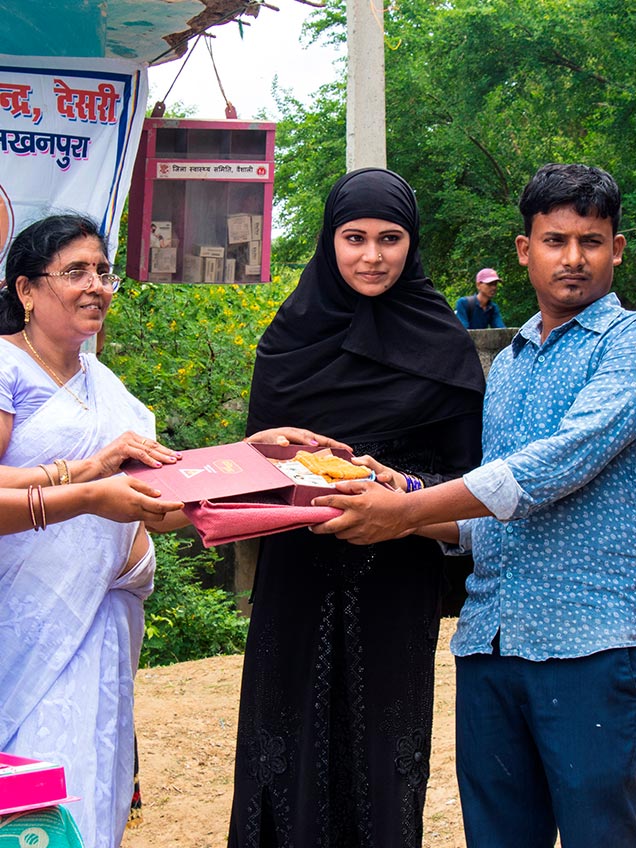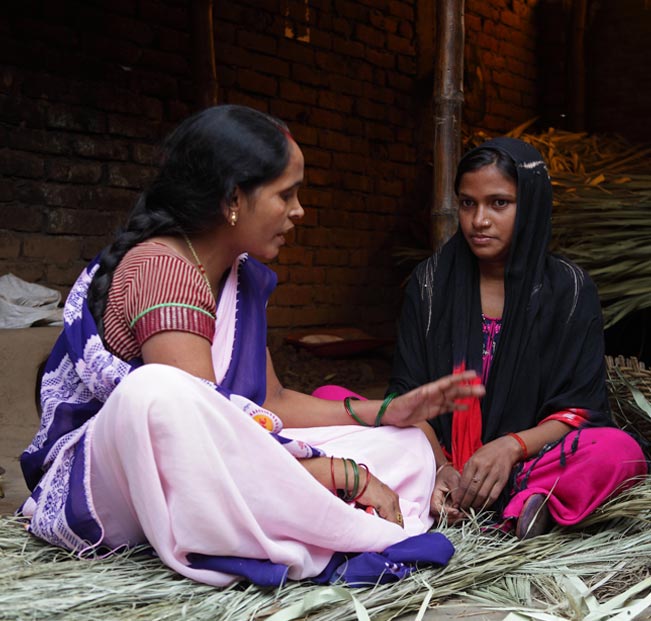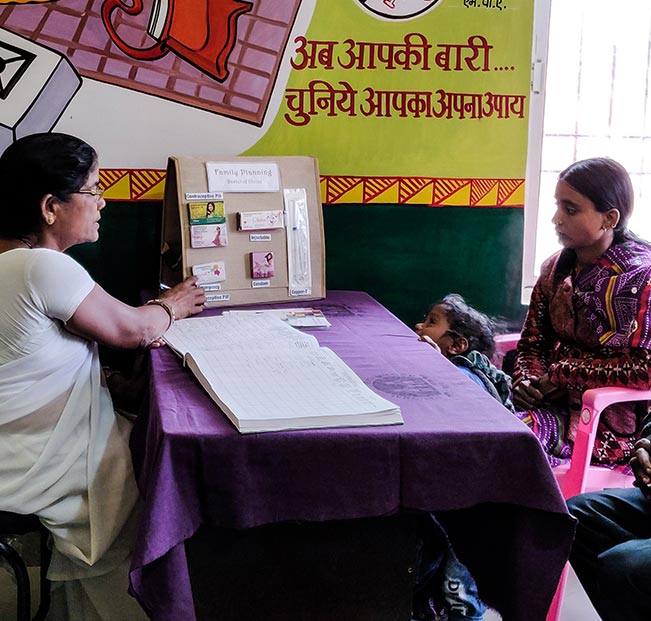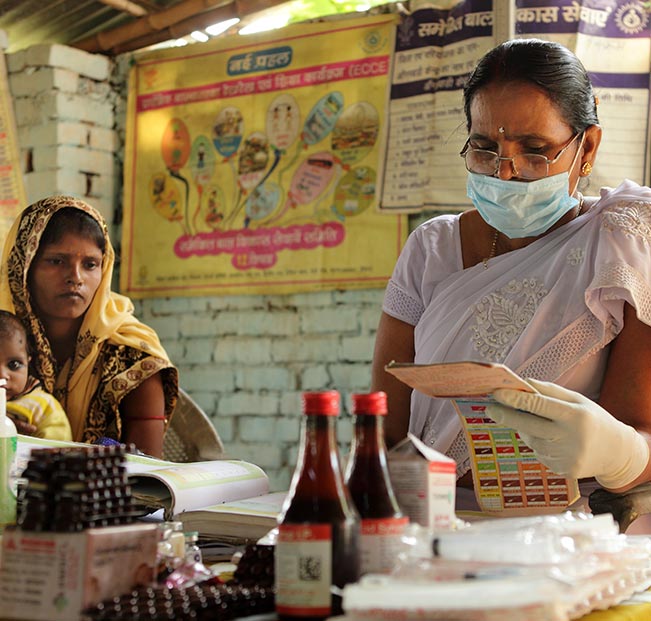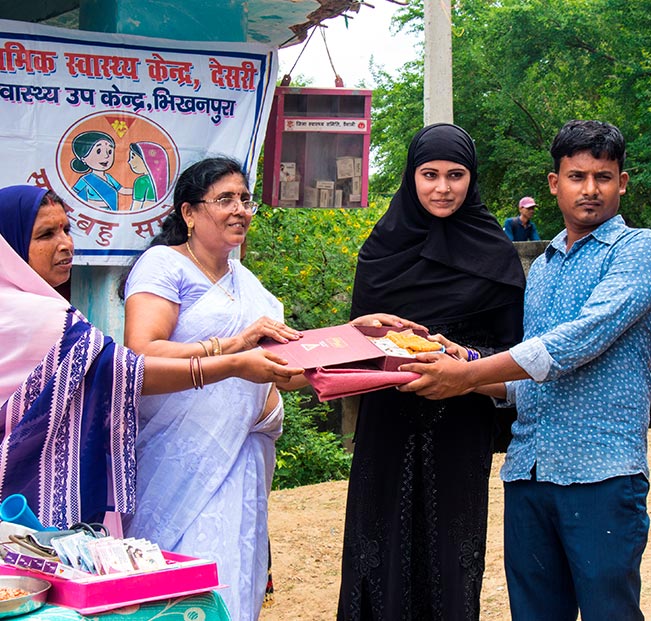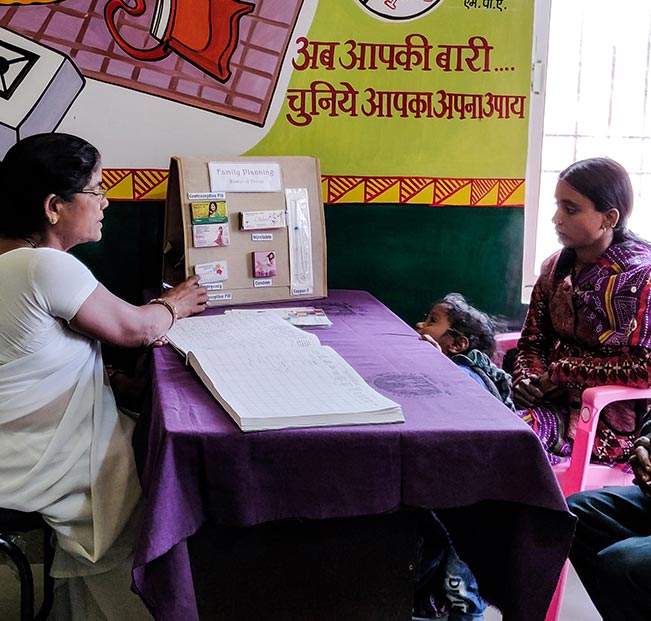The Family Planning grant provisions for strengthening the infrastructure and technically empowering the human resources to deliver quality services and prioritise the government’s efforts to expand method mix, improve quality of care, and adopt a client-focused approach.
Most of our understanding stems from our learnings emanating from zero and low parity projects, which provided rich inputs to understand how to improve modern contraceptive use among nulliparous and low parity couples, and strategically design activities to sensitise and provide services on Sexual and Reproductive Health (SRH) and Family Planning (FP) by focusing on knowledge and skills, increasing couple communication and improve quality of frontline worker interactions with clients around delay, spacing and FP.
Our approach under Family Planning initiative is to ensure all persons in the reproductive age group have the right to choose a method of their choice, access to the basket of choices and he/she can choose them voluntarily and through informed choice.
